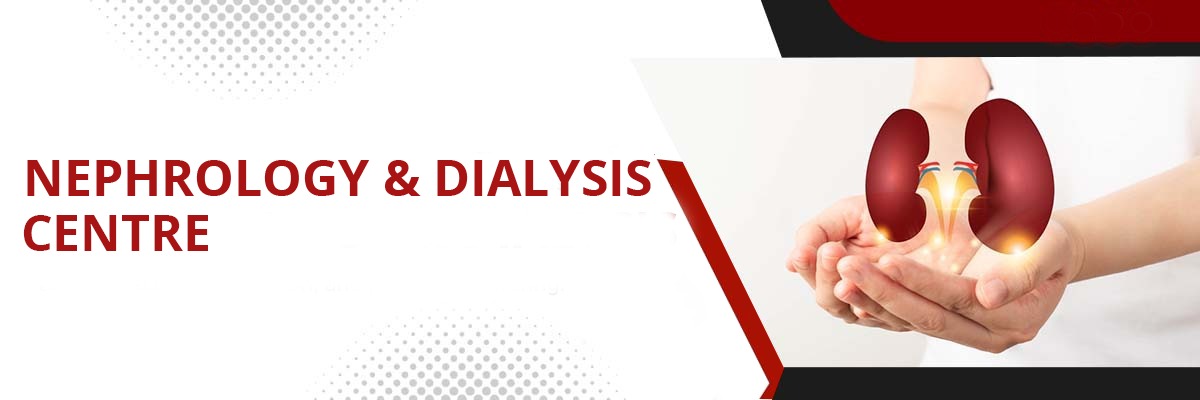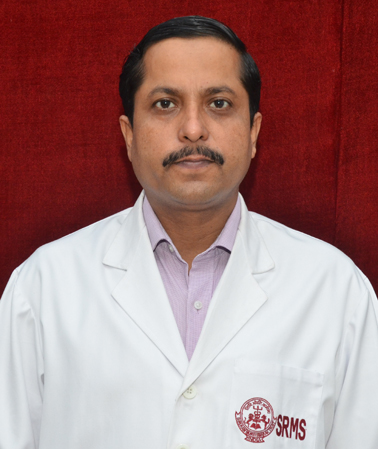
About
Having the distinction of being one of the oldest super
speciality departments in the institute, Nephrology has
been in a state of steady progress. Always improving,
the department successfully runs the busiest dialysis
centre in the region catering to a wide variety of patients
from all walks of life. Ever ready to provide services, the
department is always well received by one and all.
Managing the dialysis centre in the institute is a
cohesive and dedicated team of doctors, techniciansand nursing staff. Department is managing every aspect
of kidney disease and is intensively involved in all
procedures of interventional nephrology including kidney
biopsy, placement of temporary as well as permanent
vascular catheters (PERMCATH), AV fistula and CAPD
catheter placement, plasmapheresis and paediatric
dialysis. All the latest modalities of treatment are being
offered at exceptionally low cost to the patients. Recently,
department has started renal transplant services also
including ABO compatible, ABO incompatible, SWAP and
high risk renal transplant. All modalities of dialysis
including SLED, CRRT , APD, CAPD are available in the
department.
Services & Facilities
At SRMS Hospital in Bareilly, we are dedicated to providing comprehensive and advanced nephrology and dialysis services to meet the needs of patients with kidney-related conditions. Our state-of-the-art facilities and experienced medical professionals ensure the highest quality care for our patients. Here are the key services and facilities we offer:
1. Nephrology Consultations: Our team of experienced nephrologists provides specialized consultations to diagnose and treat various kidney disorders, including chronic kidney disease, glomerular diseases, renal hypertension, and more. We focus on personalized care plans tailored to each patient’s unique needs.
2. Hemodialysis: Our advanced hemodialysis unit is equipped with cutting-edge machines and technology to perform efficient and safe hemodialysis treatments. Our highly skilled nursing staff and technicians monitor patients closely throughout the procedure, ensuring optimal outcomes.
3. Peritoneal Dialysis: For patients who prefer peritoneal dialysis, we offer specialized facilities and training. Our experts guide patients through the process and provide ongoing support to ensure successful at-home peritoneal dialysis treatments.
4. Continuous Renal Replacement Therapy (CRRT): In critically ill patients with acute kidney injury, our hospital offers CRRT services. This therapy helps manage fluid and electrolyte imbalances, allowing for a gradual and gentle approach to renal replacement.
5. Kidney Transplant Referral and Follow-up: Our nephrology team assists patients who require kidney transplantation by providing thorough evaluations, referrals to transplant centers, and post-transplant follow-up care to ensure a smooth recovery.
6. Diagnostic Services: We offer a range of diagnostic services including laboratory tests, kidney biopsies, imaging studies, and other specialized tests to accurately diagnose and monitor kidney conditions.
7. Nutritional Counseling: Proper nutrition plays a crucial role in managing kidney diseases. Our registered dietitians work closely with patients to develop customized diet plans that help maintain kidney function and overall well-being.
8. Patient Education: We believe in empowering our patients with knowledge about their conditions. Our team provides comprehensive educational resources and counseling to help patients understand their kidney health and make informed decisions.
9. Multidisciplinary Approach: Our nephrology team collaborates with other medical specialties such as cardiology, endocrinology, and critical care to provide holistic care for patients with complex medical conditions.
10. Support Services: We understand the emotional and psychological challenges that come with kidney diseases. Our hospital offers counseling and support services to help patients and their families cope with the impact of these conditions.
11. Emergency Care: For kidney-related emergencies, our hospital’s emergency department is equipped to provide prompt and specialized care to stabilize and manage critical situations.
Kidney Transplant
A kidney transplant is a surgical procedure in which a healthy kidney from a living or deceased donor is transplanted into a person whose kidneys have failed. The kidney’s main function is to filter and eliminate waste, minerals, and fluid from the bloodstream through urine production.
Who Needs A Kidney Transplant?
A kidney transplant is needed when the kidneys lose their ability to filter, harmful quantities of fluid and waste build up in the body, raising blood pressure (losing 90% of their ability to function normally) and ultimately leading to renal failure (end-stage kidney disease).
A kidney transplantation is linked to:
- A higher standard of living
- Death risk is reduced
- There are fewer dietary limitations
- Reduced treatment costs Read More …..
Treatments
- Chronic Kidney Disease (CKD) Management: Nephrologists diagnose and manage various stages of CKD through lifestyle modifications, medication, and close monitoring to slow disease progression.
Hypertension Management: Nephrologists specialize in managing high blood pressure, which can impact kidney health.
Glomerular Diseases Treatment: Conditions affecting the glomeruli (filtering units of the kidneys) such as glomerulonephritis are diagnosed and treated by nephrologists.
Electrolyte and Acid-Base Disorders: Nephrologists treat imbalances in electrolytes and acid-base levels, which can have a significant impact on overall health.
Kidney Stone Management: Treatment options for kidney stones may include medications, dietary recommendations, and in some cases, surgical procedures.
Diabetic Kidney Disease Management: Nephrologists work closely with endocrinologists to manage kidney complications related to diabetes.
Dialysis Treatments:
Hemodialysis: This process involves filtering blood using a dialysis machine to remove waste, excess fluids, and electrolytes. It’s a common treatment for advanced kidney failure.
Peritoneal Dialysis: A method that uses the lining of the abdomen (peritoneal membrane) as a natural filter to remove waste and excess fluids. This can often be done at home.
Continuous Renal Replacement Therapy (CRRT): Primarily used in critically ill patients, CRRT is a slow and continuous form of dialysis that helps stabilize electrolyte and fluid imbalances.
Plasmapheresis: Also known as plasma exchange, this procedure involves removing and replacing a patient’s plasma, often used in specific autoimmune kidney diseases.
Kidney Transplantation: Nephrologists collaborate with transplant surgeons to assess, prepare, and manage patients undergoing kidney transplant surgery.









